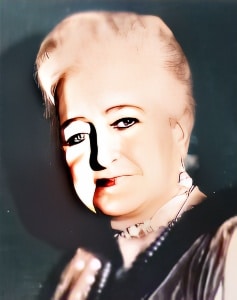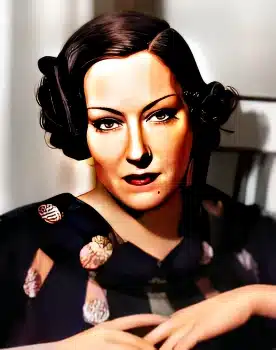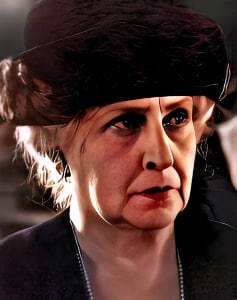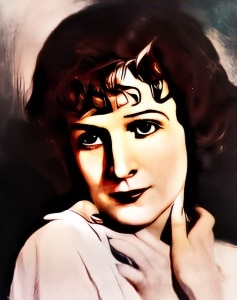 Kate Lester, born on August 23, 1857, in England, was an accomplished actress who made her mark in both the world of theater and silent film during the late 19th and early 20th centuries.
Kate Lester, born on August 23, 1857, in England, was an accomplished actress who made her mark in both the world of theater and silent film during the late 19th and early 20th centuries.
She is remembered for her significant contributions to the arts and her ability to portray a wide range of characters on stage and in early cinema.
Lester’s journey into the world of acting began in the late 19th century when she made her debut in London. Her stage career soon took her to the United States, where she gained recognition for her talent and versatility. Her early theater performances allowed her to showcase her exceptional range and ability to take on various roles.
One of her career-defining moments came when she played the role of Mrs. Alving in Henrik Ibsen’s play “Ghosts.” Her portrayal of Mrs. Alving, a complex and emotionally charged character, was widely acclaimed and established her as a prominent stage actress. This role demonstrated her profound understanding of the human condition and her ability to convey deep emotions on stage.
Lester’s versatility extended to the world of silent cinema. In the early 1910s, she made her transition to film, taking on roles in various silent films. Her entry into film marked the beginning of a new phase in her career, and she continued to excel in this medium. She was part of a generation of stage actors who made a seamless transition to the new and exciting world of cinema.
One of her notable film appearances was in “The Call of the North” (1914), a drama directed by D.W. Griffith. Her performance in the film showcased her ability to adapt to the unique demands of silent film acting, where expressions and movements played a central role in storytelling.
Kate Lester’s career was marked by her dedication to the craft of acting and her ability to portray a wide array of characters, from strong-willed and dramatic roles to gentle and compassionate ones. Her work in theater and early film captured the hearts of audiences and garnered critical acclaim.
In addition to her acting career, Lester was an advocate for the rights of actors and was instrumental in the formation of actors’ organizations. She was one of the founding members of the Actors’ Equity Association, an important labor union for stage actors. Her efforts in this regard contributed to improved working conditions and fair treatment for actors in the theater industry.
Lester’s impact on the arts extended beyond her work as an actress. Her advocacy for the welfare and rights of actors left a lasting legacy in the industry, ensuring that the concerns and needs of performers were recognized and addressed.
Kate Lester’s journey from the stages of London to the screens of early cinema is a testament to her talent, versatility, and passion for the arts. Her ability to connect with audiences on an emotional level, both on stage and in film, made her a respected figure in the world of entertainment.
She continued to act in both theater and film until the end of her career, leaving behind a body of work that stands as a testament to her dedication and talent. Her contributions to the arts, her advocacy for the rights of actors, and her legacy as a versatile performer make Kate Lester an enduring figure in the history of theater and early cinema.
Loading live eBay listings...




